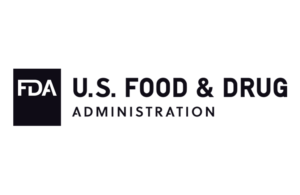 FDA concluded that NIH-funded BlueWillow Biologics (Ann Arbor, Mich.) had marketed an alcohol-free, over-the-counter (OTC) nasal antiseptic to “mitigate, prevent, treat, diagnose, or cure COVID-19 and other conditions in people.”
FDA concluded that NIH-funded BlueWillow Biologics (Ann Arbor, Mich.) had marketed an alcohol-free, over-the-counter (OTC) nasal antiseptic to “mitigate, prevent, treat, diagnose, or cure COVID-19 and other conditions in people.”
The agency concluded that the NanoBio Protect product is an unapproved new drug and that the product is misbranded.
FDA explained in the warning letter that the labeling claims for the drug “go beyond merely describing the general intended use of consumer antiseptics” described in the 1994 tentative final monograph or proposed rule (the 194 TFM). “Your claims on the product label, suggesting your consumer antiseptic provides all day efficacy against infection, and your claims on your websites, which suggested all day protection against serious-disease related pathogens including the novel coronavirus that causes COVID-19, do not conform to the 1994 TFM or any of the amendments to the TFM discussed above,” the letter continued.
Furthermore, the product’s intended use as a consumer antiseptic product for use inside and around the nostrils is not permitted under the 1994 TFM, FDA concluded.
 “Failure to adequately correct any violations may result in legal action, including, without limitation, seizure, and injunction,” the agency warned.
“Failure to adequately correct any violations may result in legal action, including, without limitation, seizure, and injunction,” the agency warned.
In May 2020, BlueWillow Biologics announced that the nasal antiseptic killed COVID-19 in lab tests. The press release stated that the “product has not been clinically tested in humans to confirm protection against COVID-19 infection,” but that it inactivated more than 99.99% of SARS-CoV-2 in lab tests. An NIH press release echoed that finding.
FDA cited several instances from the company’sNanoBioProtect.com and Bluewillow.com websites and its product label describing its potential to kill germs, including SARS-CoV-2.
Concluding that the topical antiseptic is a “new drug,” the agency acknowledged that the company had removed some of the claims related to the product at the time it filed the letter.
BlueWillow Biologics also has an intranasal vaccine platform with three lead commercial programs. Those include a peanut allergy vaccine, an HSV-2 (Herpes) vaccine and a SARS CoV-2 booster.





Sounds like the FDA didn’t do their job and we’re blocking an effective treatment option for the public. Ppl hv been using nasal antiseptics for years and years with no ill affects and now the FDA steps in. Nope. Heavy handed and not in the best interest of the public. Instead support the industry in continuing to develop nasal applications for continued and future use.